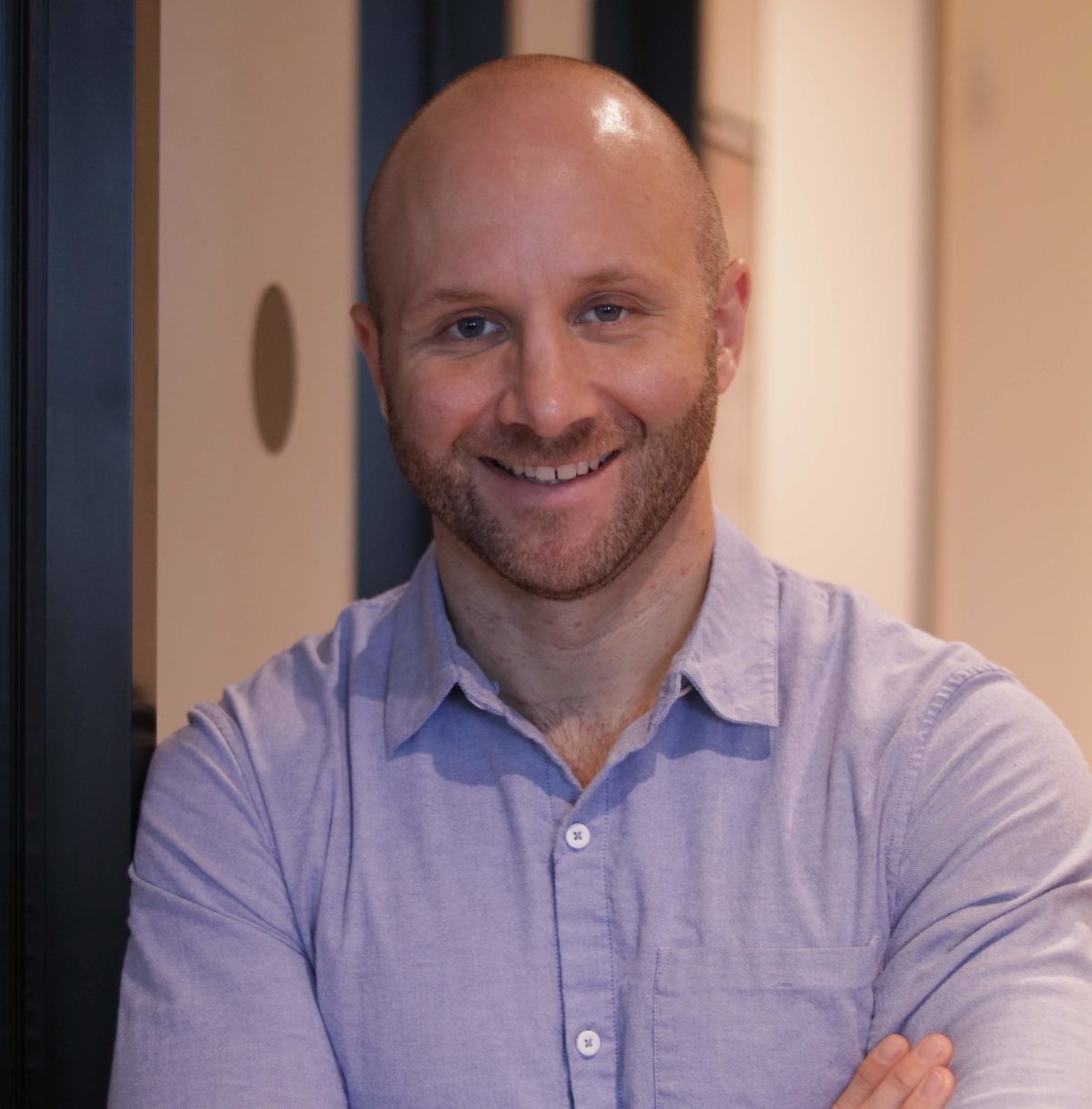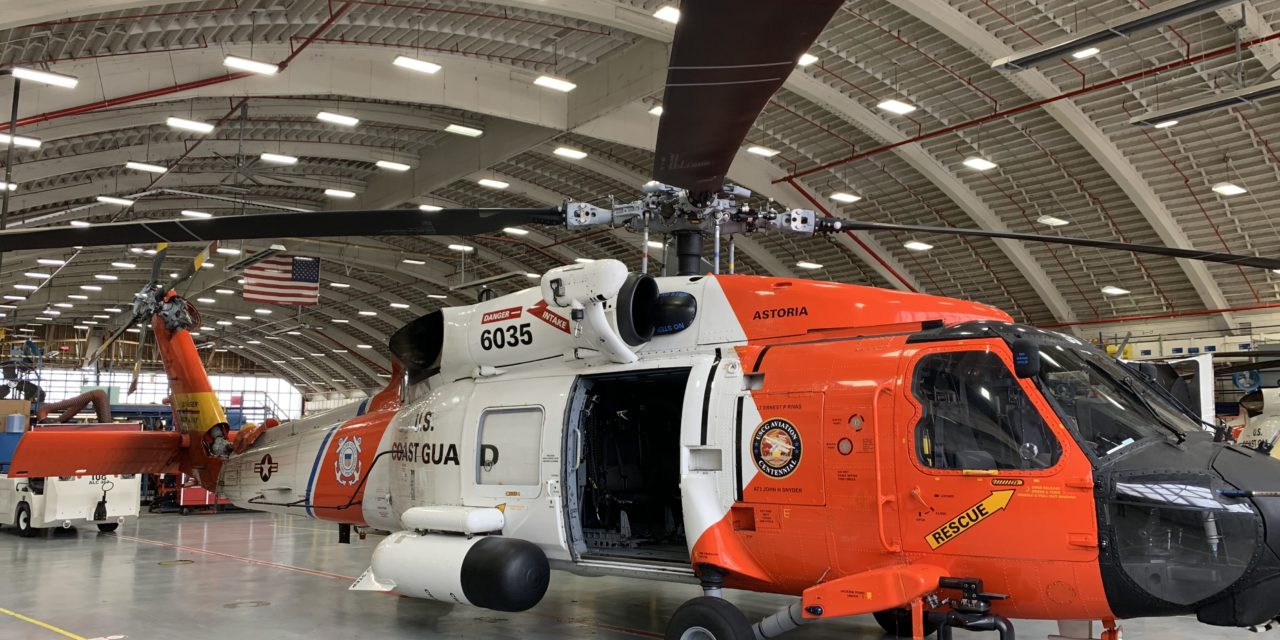Earlier this month, I took a freelance job for the Weather Channel.
Since starting my new business last year, I haven’t had to do jobs like this often, but I’m grateful I have the option to when times are slow.
It was an easy job — just a short interview and some b-roll — but it was three hours away on a U.S. Coast Guard base.
Fortunately, over the years I’ve learned how to advocate for myself, so I negotiated a rate that made the trip worth my while.
But I didn’t expect that I’d have to call on another lesson I’d learned over the years.
It was a lesson of humility and honesty.
When a camera operator sets up for an interview, he or she needs at least three things to make it good: an interesting background, good natural light, and a quiet space. We were in a hangar full of Search and Rescue helicopters and had the first two needs on lock.
But a storm had come through that morning and the day was incredibly windy. This shook the plastic panel windows in the hangar constantly, sometimes vigorously, and it killed my audio.
Background noise is sometimes okay, like the people in the hangar working on helicopters. If the audience’s eyes can see the source of the noise, their brain can comprehend it. But if the noise if off-screen and they don’t see where it comes from, it can be very distracting.
I was happy the look of the shot and my interview subject did a great job, but I couldn’t tell how bad the audio was in my headphones and we had no other option for location. It took them months to coordinate this shoot with the Coast Guard.
I dipped into an office to listen more closely and see if we needed to reshoot and it sounded good enough to use, especially if we “fixed it in post” — which is a lazy strategy often used to fix mistakes made during the shoot later in the process of editing (postproduction).
When I got home and listened on my speaker system, it was worse than I thought.
I had a decision to make.
Did I send in the footage anyway and not mention it? Do I take the loss and ruin a new working relationship? Do I tell them we need to reshoot it?
All of these options sucked.
The job was worth its pay, but not by much. If I had to drive back down there, it would be a big loss. If I didn’t get paid for the day I did drive down there, it would also be a big loss.
I needed that paycheck.
There was a time in my career where I would have been defensive (“Well, it’s your fault because you didn’t secure a good location!”) or evasive and not mentioned it until they received the hard drive. Both of those are rooted in fear and insecurity.
Instead, I decided to face it head on. It wasn’t my fault, but I contributed to it and I needed to see if I could fix it.
Before I reached out to them, I passed off a clip to my trusted audio mixer, Mike. Mike has done wonders for my audio before and I knew he’d level with me. If he could make it sound better, I was also prepared to pay him to fix it so I could save the job.
Once he told me how he’d fix it, I was armed with more information. This allowed me to come with potential solutions, instead of just my tail tucked between my legs.
I was still a nervous wreck. My inner perfectionist did not like making mistakes.
I sent a sample clip online and told the producer what happened.
She was justifiably annoyed, but mainly because she had her own boss to answer to, and no one wanted to have to reshoot this interview. She said I should have still called so she could have helped find a solution during the shoot, and she was right. This was a misstep on my part.
But I explained how we could fix the audio and I figured their editing team had staff that handled this sort of issue.
(Not that I wanted to just pass off the issue, but this was The Weather Channel. Didn’t they constantly have footage with wind, rain, and thunderstorms?)
Ultimately, once their editors listened to it, and they realized how long it would take to reschedule, they let it pass. The noise was intermittent and there was plenty of usable footage.
I knew this, but still wasn’t comfortable with turning in work that wasn’t as great as it could be.
But I’m proud of how I handled it — and not because it was some heroic deed. I just did the right thing. But besides being humble and honest (which was the right thing), I also did the right thing to help the team win. I did everything in my power to solve the issue and was willing to take a small hit in my pay if it helped the overall project.
At the same time, I respected myself enough to protect my own payment for something that wasn’t my fault. I apologized for what I could control and failed to, but I stood my ground that I did my due diligence to carry out the job to the best of my abilities.
It took me a long time to learn how to handle situations like this and I try to apply to all aspects of my life.
Be honest, be humble, but stand tall and face the fear with knowledge, respect, and a good attitude.
 Rain Bennett is a two-time Emmy-nominated filmmaker, writer, and competitive storyteller with over a decade of experience producing documentary films that focus on health and wellness. His mission is simple: to make the world happier and healthier by sharing stories of change.
Rain Bennett is a two-time Emmy-nominated filmmaker, writer, and competitive storyteller with over a decade of experience producing documentary films that focus on health and wellness. His mission is simple: to make the world happier and healthier by sharing stories of change.
You can read the rest of “Right as Rain” here, and check back every Wednesday on Chapelboro for a new column!


